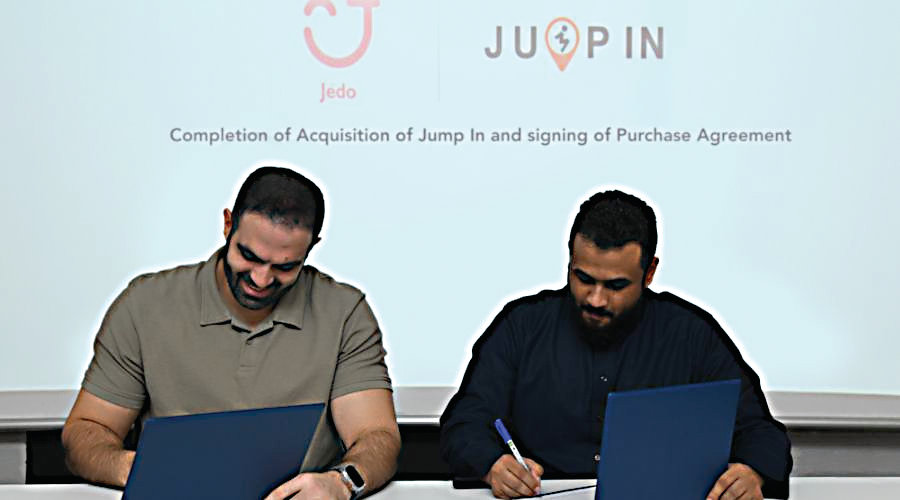CAIRO: Saudi Arabia has solidified its position as a top destination for venture capital funding in the Middle East and North Africa thanks to a record-breaking end to 2023.
In December, the region witnessed an unprecedented influx of startup funding, amounting to $1.15 billion, according to Wamda’s monthly report in collaboration with Digital Digest.
This figure marks an 825 percent increase year-on-year and a 55 percent rise month-on-month. Significantly, $700 million of this sum was attributed to the debt round raised by the UAE-founded and now Saudi-headquartered fintech, Tabby.
Excluding this substantial debt round, MENA startups raised $456 million in December alone, an 18 percent increase on November and a 253 percent rise on the same month of 2023.
Overall, 2023 saw startups in the region secure $3.98 billion across 498 deals.
While this represents a marginal increase of less than 1 percent from 2022’s $3.95 billion raised over 802 deals, the picture changes when debt rounds are discounted.
Excluding these, MENA startups raised $2.2 billion across 488 deals in 2023, compared to $3.45 billion across 786 deals in 2022, showing a significant 36 percent fall in deal value and a 38 percent drop in transactions.
The year 2023 also saw a 256 percent increase in the amount of debt raised compared to the previous year, totaling $1.77 billion.
December’s deal-making activity demonstrated growth with 60 transactions recorded, a jump from November’s 49 deals.
This increase was driven largely by an upswing in grants concentrated in the UAE, Saudi Arabia, and Lebanon, and the graduation of 19 startups from the Sanabil 500 Startup accelerator program and Techstars Riyadh.
Saudi Arabia maintained its lead as the top destination for venture capital funding for the second consecutive month, primarily due to large-sized transactions by Tamra and Tabby. Egypt was a distant second, and the UAE came in third.

Dutch travel tech company Jedo has acquired the Jump-in app, bolstering its market presence in the Kingdom and expanding its user base. (Supplied)
Fintech emerged as the dominant sector, with 25 deals exceeding $1 billion in funding, including Tabby’s debt round. Clean tech followed, with substantial funding rounds for Saudi Arabia-based secondhand e-commerce marketplace Soum and UAE’s Zeroe.
Other sectors like health tech, educational tech, logistics, and mobility also attracted significant investor interest. Early-stage deals, primarily from accelerators, dominated the deal volume.
Funding was notably skewed towards male-led startups, with less than 1 percent of deal value going to mixed founding teams or female-founded startups.
Key developments in December included four acquisition and merger deals, such as Pure Harvest’s acquisition of Red Sea’s production facility in Saudi Arabia and Maxab’s merger with Wasoko.
In light of the UN climate change conference, COP28, held in Dubai, clean tech-focused initiatives gained momentum, including an accelerator program by PepsiCo, SABIC, AstroLabs, and a substantial climate tech fund from Investcorp.
As the MENA region continues to grow as a hub for innovative startups, Saudi Arabia’s leading role in this surge of investment activity is clear.
The Kingdom’s thriving startup ecosystem and its ability to attract large-scale funding are pivotal in shaping the future of entrepreneurship and technology in the region.
Dutch travel tech Jedo expands to Saudi Arabia
In a significant step towards global expansion, Dutch travel tech company Jedo has acquired the Jump-in app, marking its strategic entry into the Saudi market.
The acquisition is a pivotal move for Jedo, significantly bolstering its market presence in the Kingdom and expanding its user base.
By integrating Jump-in app’s unique capabilities, Jedo plans to digitize trip planning by embedding artificial intelligence technologies. This approach aims to offer more personalized and engaging travel experiences to users.
Jedo’s strategy involves close collaboration with key stakeholders, including Plug and Play and local tourism authorities in Saudi Arabia.
This partnership is set to leverage technologies’ potential in reshaping the country’s tourism sector, catering to both local and international travelers with authentic and tailored experiences.
The Jump-in team is expected to play an instrumental role in shaping Jedo’s operational strategies in the Kingdom, as well as forging new partnerships and alliances.
With a dual focus on enabling Saudi residents to explore their own country and providing international visitors with genuine Saudi experiences, Jedo is dedicated to adapting and refining its platform to align with the cultural and consumer preferences of the Saudi audience.
The Jedo team is currently concentrating on customizing the platform to resonate more closely with the distinct characteristics of the Saudi market.
UAE’s Phoenix Group acquires 25 percent of Lyvely
Phoenix Group PLC, a UAE-based firm specializing in cryptocurrency mining and blockchain, has expanded its portfolio by acquiring a 25 percent stake in Lyvely, a platform focused on social networking and content monetization.
Founded in 2016 by Bijan Al-Izadehfard and Munaf Ali, Phoenix has been actively pursuing opportunities to diversify and enhance its presence in the digital landscape.
The acquisition of a stake in Lyvely is aligned with this vision, offering a new avenue for growth.
Lyvely, established in 2020 by Farah Zafar and Dave Catudal, is a UAE-born platform that has carved a niche in assisting content creators to monetize their online presence effectively.
It also offers consumers unique and personalized experiences, bridging the gap between creators and their audiences.
Lyvely received an undisclosed amount in seed funding from Cypher Capital in August. This investment is earmarked for the development of a cryptocurrency token, signaling the company’s foray into the world of digital currencies and further expansion in the online content sphere.
The partnership between Lyvely and Phoenix Group opens new areas of collaboration for both companies, offering new opportunities for growth in the digital content market.

























